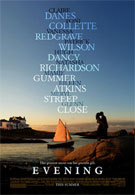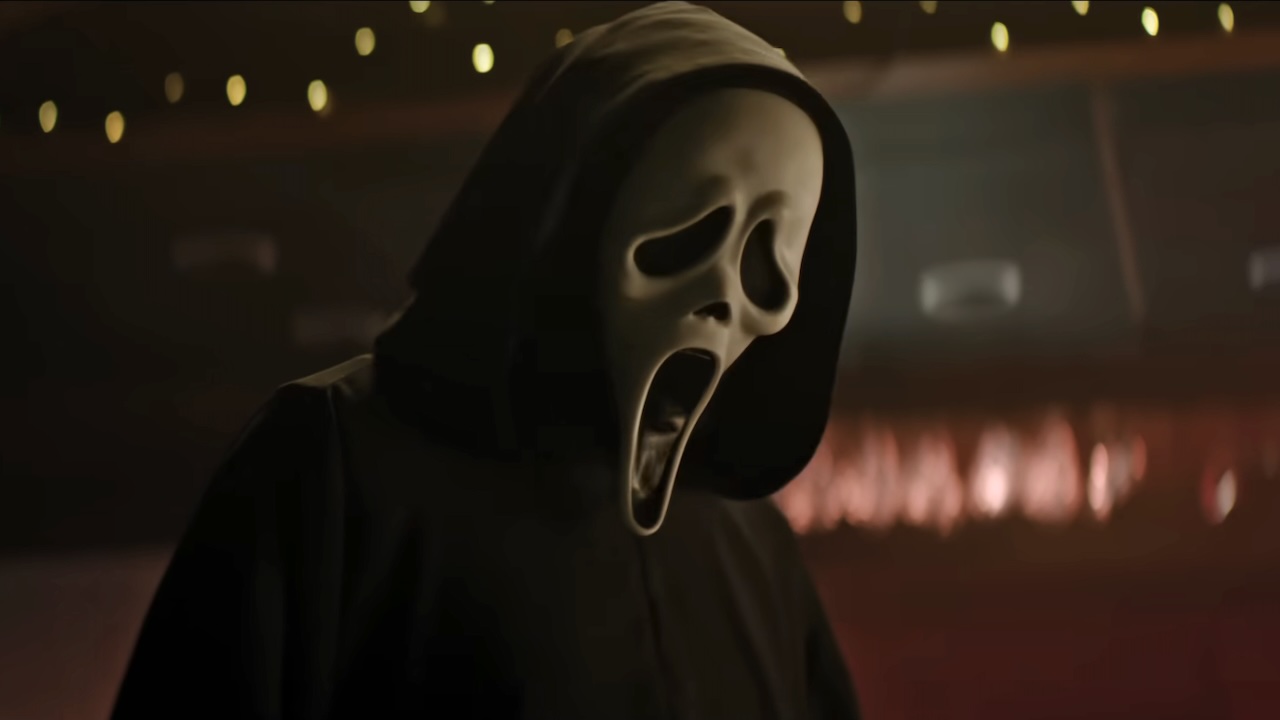Evening is, to put it mildly, not an easy movie to sell to men. It’s told from the perspective of Ann (Vanessa Redgrave), a woman on her deathbed recalling a pivotal moment in her life 50 years earlier. When she randomly blurts out, “Where’s Harris?” her grown daughters (Toni Collette and Natasha Richardson) have no idea what she is talking about. And there’s no reason they would--in her near-death state of delirium, she is letting them in on a secret.
If ever there were a movie custom-made for women, Evening would fit the bill. It sports a hefty, female-friendly bag of tricks: mother-daughter strained dynamics, wilted romances from years past, deflated dreams, life-changing memories and even a few long walks on the beach. There’s enough sentimentality here to coat a football field, but it excels at what it does and will likely find some weepy-loving fans among the Terms of Endearment/Notebook loyalists.
Evening, the second feature by acclaimed cinematographer-turned-director Lajos Koltai (Fateless), is based on the book by Susan Minot, who wrote the screenplay with Michael Cunningham (The Hours). The story jumps from the present, where Ann is joined by family and a doting night nurse (Eileen Atkins) for her final moments, to the past, where she spends a weekend with close friends for an impending wedding. Young Ann is played by Claire Danes (who looks nothing like a mini Redgrave, but we’ll let that one slide) with an air of sophisticated whimsy.
Her best friend Lila (Mamie Gummer, a.k.a. Meryl Streep’s real life daughter) is set to marry a man she doesn’t much care about, mainly because she can’t be with the one she wants, Harris (Patrick Wilson). He’s a handsome, semi-unattainable doctor that wins everyone over, despite the fact that he’s as exciting as a bowl of Muesli. Even Ann is wooed, much to the dismay of Lila’s brother Buddy (Hugh Dancy), an unstable, vivacious guy who’s been holding onto feelings--and a crusty old note she passed him years ago--for a frightening span of time. Dancy is achingly good at playing this beautiful disaster.
At its core, Evening is about regret and longing. Ann has lived her entire life, with a few failed marriages along the way, and has never forgotten about this dreamy man she barely knew before a tragedy sent them in opposite directions. Was Harris truly all that wonderful? Not really, and that’s one way that Evening gets it right--hindsight can be a nasty mind trick, up to the last breath.
Where Evening gets it wrong is in trying to squeeze too many gifted female actresses into this overstuffed drawer. Collette and Richardson aren’t developed enough to make any real impact, Atkins is criminally underused and Glenn Close appears in a throwaway part as the bride’s mom. The smallest role with the biggest impact is played by (who else?) Streep, as the grown-up Lila. There’s a scene between her and Redgrave, both powerhouse talents, which should be screened in acting classes to teach inquiring minds how it’s really done.
Even with its lack of subtlety, and occasional flair for the melodramatic, Evening is a solid family drama that is hard to dismiss. The incredible all-around acting and sense of bittersweet nostalgia help make the movie seem stronger than it actually is. Don’t be surprised if, much like the girls flocking to Harris, you fall prey to its charms, leaving caution (and arguably logic) out to dry.
Your Daily Blend of Entertainment News

